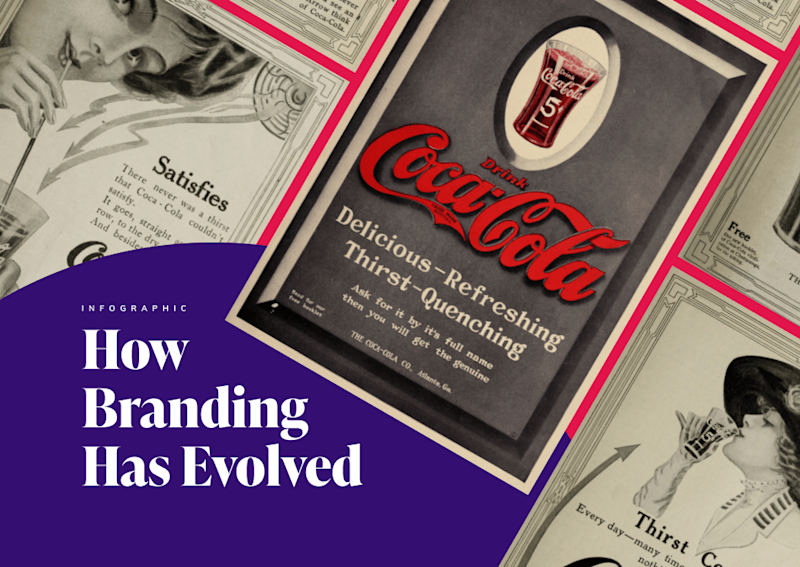The pandemic – accompanied by social isolation, uncertain futures and, in some cases, financial hardship – has taken its toll on our psychological well-being. With Maybelline signing mental health advocate Storm Reid last week and Maltesers talking openly about post-partum depression, mental health is currently a huge focus for brands.
Mental health marketing can be a tricky topic to get right. You might remember the widely-criticized Burger King campaign from 2018, which was accused of capitalizing on mental illness to sell burgers.
The world has changed since then, and consumers seem more receptive to brands speaking out about a once-taboo topic. In this article, we explore how three leading brands kicked off 2021 with powerful campaigns promoting mental wellbeing.
Top Three Mental Health Marketing Campaigns
Maltesers, Maybelline and JanSport have put mental health awareness at the core of their campaign messaging. Let’s dive into the strategy behind these powerful campaigns.
1. Maltesers #TheMassiveOvershare
Key Message
Maltesers launched its campaign, #TheMassiveOvershare to promote maternal mental health and encourage mothers to be open about the highs and lows of motherhood and get the support they need.
A study commissioned by Maltesers showed that mums are seriously struggling, and they don’t feel able to ask for help. One in six mums often feels overwhelmed, a quarter said they didn’t want to burden others and over a third reported trying not to overshare.
Being a mum comes with a rollercoaster of highs and lows. While motherhood has never been easy, mums have been exposed to whole new challenges over the last 12 months of lockdown and home-schooling.
Target Audience
This campaign is focused on women and mums. While lots of people enjoy chocolate, the marketing team at Maltesers is savvy enough to know that it needs to focus on a specific audience to be truly impactful.
Why It Works
A big thank you to @maltesersuk who have donated £225,000. We've loved working together to help shine a light on maternal mental health. #RedNoseDay pic.twitter.com/PgsAP5kUk0
— Comic Relief (@comicrelief) March 19, 2021
We know how important it is to talk about the fact that motherhood and parenting can be tough. Maltesers aims to help women build resilience by laughing together through the tough stuff. It’s what we’ve always done and what we will continue to do, now and for years to come. Leah Dyckes, Brand Director, Maltesers
The Mars-owned brand got a lot right here. Firstly, their timing was spot on. The campaign coincided with Mother’s Day in the UK and International Women’s Day. However, the timing doesn’t feel opportunistic because the campaign is part of Maltesers ongoing narrative around mental well-being.
The brand has a history of daring to speak out on tough emotional issues, winning awards back in 2016 for its campaign featuring disabled actors. And it’s not just an empty narrative – Maltesers has donated hundreds of thousands this year alone to support mental health causes.
The Overshare campaign works because it builds on the brand’s long-standing purpose of uniting people through the power of laughter.
2. Maybelline "Brave Together"
Key Message
Maybelline New York launched “Brave Together”, which their brand team describes as “a long-term program to support anxiety and depression worldwide”.
Brave Together aims to destigmatize anxiety and depression, provide one-on-one support, and let those who are struggling and their loved ones know that they are not alone.
Target Audience
Women aged 14-24 are the main consumers of Maybelline products, so the initiative is focused on the challenges young women face and how to help them.
The Brave Together website features real stories from young women on their mental health journey. The brand also recently signed Storm Reid, a 17-year-old actress who is known for being vocal on issues surrounding racial equality, mental health, and inclusivity.
Amy Whang, Senior Vice President of US Marketing at Maybelline, explained, “We have traditionally used models, but we wanted to align ourselves with a spokesperson that really resonated with the Generation Z consumer.”
Why It Works
As someone who has lived with depression, building this program for Maybelline took on more meaning for me and it was important to provide resources that would truly make a difference for those who need it most. Kristen Tully, AVP Global Brand Communications, Maybelline New York
Over the past two years, Maybelline has worked with universities and charities to conduct extensive research into mental health issues. The brand is in the process of training all employees in mental health first aid.
Through their partnership with Crisis Text Line, they provide access to free, confidential counseling 24/7 via SMS.
And that’s just the beginning. Maybelline is committed to investing $10M over the next five years to mental health organizations worldwide.
In other words, it’s much more than a campaign. Maybelline lives and breathes their mission to have a tangible impact on people living with anxiety and depression. This level of commitment to the cause gives the brand a high level of credibility and trust.
3. Jan Sport #LightenTheLoad
Key Message
JanSport’s #LightenTheLoad campaign aims to connect Generation Z with resources to help them tackle mental health challenges. The brand wants young people to know that mental health doesn't have to be a taboo topic, and they are not alone in their struggles.
Seven out of ten young people admit mental health issues get them down, and three in ten young people say they feel anxious or nervous almost every day.
Growing up has always been a stressful time. With the ongoing pandemic, Gen Z is facing unprecedented challenges, including social isolation, canceled exams, virtual graduations, uncertain job prospects and not knowing if their college will be open in the fall.
Target audience
The target audience is clearly Generation Z, which is reflected in the content JanSport creates, the platforms the brand is present on and the influencers amplifying the campaign message.
The brand hosts regular Instagram Live sessions where young people can join in to have an open conversation with mental health experts, or watch later on Instagram TV. They are also collaborating with five high school podcasters to create an exclusive series on the mental health challenges facing teenagers in 2021.
Monica Rigali, Senior Director of Marketing at JanSport, explains, "JanSport has been a trusted brand for young people for decades and we understand our consumers are going through unprecedented and uncertain times.”
Why It Works
The purpose of the Lighten The Load campaign is to drive conversations around mental health and demonstrate to Gen Z that we understand the anxiety, isolation and stress they are feeling, and we're here to help. Monica Rigali, Senior Director of Marketing, JanSport
In the brand’s own words, the campaign has generated “unprecedented engagement between Gen Z and the JanSport brand.”
Generation Z can be skeptical of brands, celebrities and being “sold to”. JanSport is very smart in how it engages with this “difficult” audience. JanSport’s #LightenTheLoad campaign shows brands can achieve great results when they put their audience first and address important issues in a way that seems authentic and engaging.
Final Thoughts
Whoever your target audience is, they are likely to be going through a hard time right now. If their mental health is suffering, they are unlikely to be receptive to your usual marketing messaging.
Campaigns promoting psychological well-being can help brands to foster a deeper connection with their audience, improving brand perception and brand affinity.
Have you tried to incorporate mental health into your marketing? We would love to hear about it!





